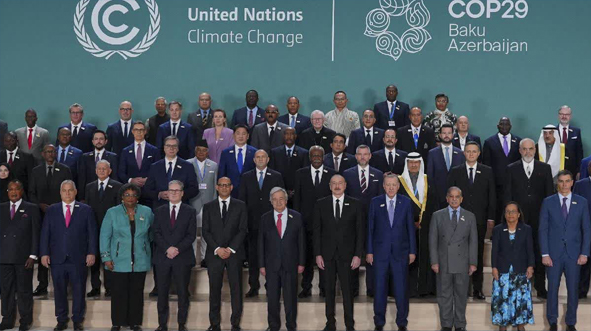COP29 projects a 170 billion fund for climate financing to low and middle income countries

At COP29, a coalition of leading multilateral development banks (MDBs) announced a projected annual climate financing of $170 billion for low- and middle-income countries, with $120 billion dedicated to climate initiatives by 2030, including $42 billion for climate adaptation. The MDBs, including the World Bank, ADB, and EBRD, aim to also mobilize $65 billion yearly from the private sector. For high-income nations, the financing goal is set at $50 billion annually, with $7 billion allocated for adaptation efforts.
The announcement aligns with COP29 President Mukhtar Babayev’s focus on enhancing climate financing to address urgent climate needs. While acknowledging progress, Babayev emphasized that current funding levels are insufficient to meet global climate goals. In support, the COP29 Presidency also highlighted operationalization of the Loss and Damage Fund, which is expected to start financing projects by 2025, following agreements with the World Bank and the Philippines as host nation. Sweden recently pledged an additional $19 million to the fund, raising total commitments to over $720 million.
Separately, at a meeting of Least Developed Countries (LDCs) alongside UN Secretary-General Antonio Guterres, Prof. Muhammad Yunus, Chief Adviser of Bangladesh’s interim government, called for a new global economic framework. Yunus emphasized that this framework is essential for tackling the climate crisis and fostering a sustainable civilization focused on environmental and social well-being.
The COP29 Presidency also introduced an annual dialogue to coordinate climate funding for loss and damage, aiming to unify global efforts across the UNFCCC and external stakeholders. This dialogue underscores the summit’s drive to support vulnerable nations, with calls for more financial contributions to meet escalating climate challenges.





Comment here